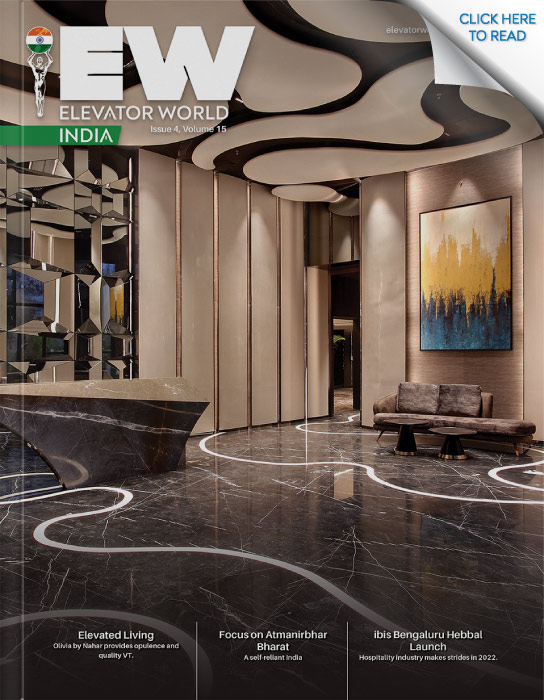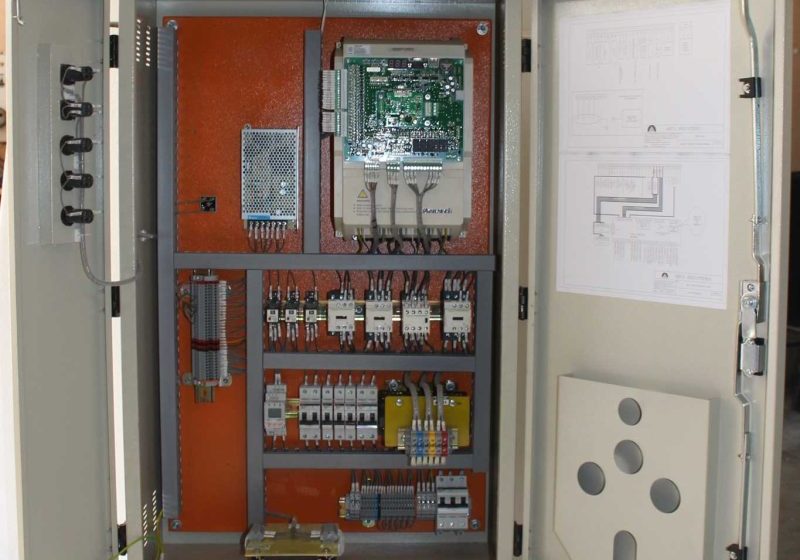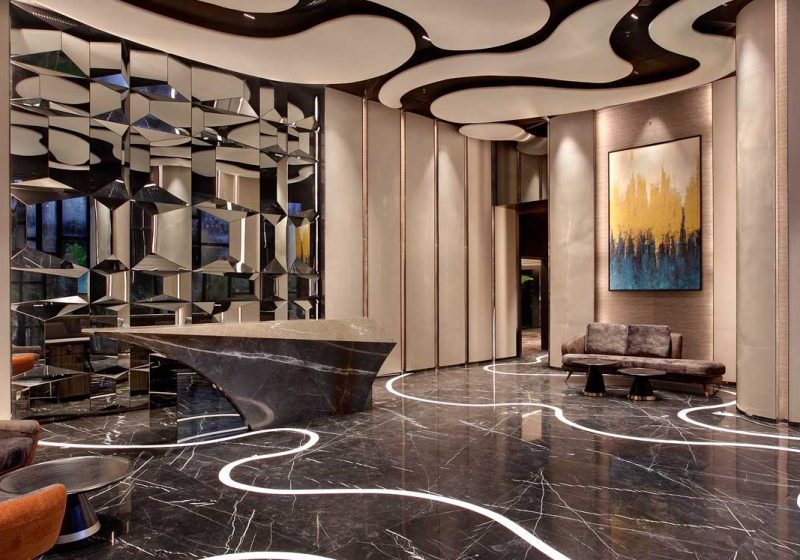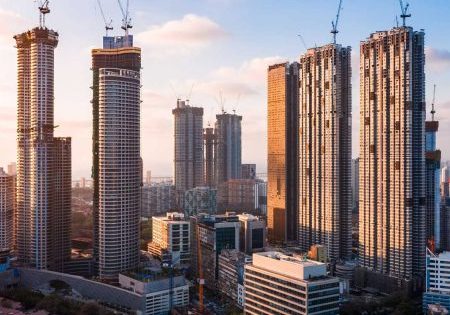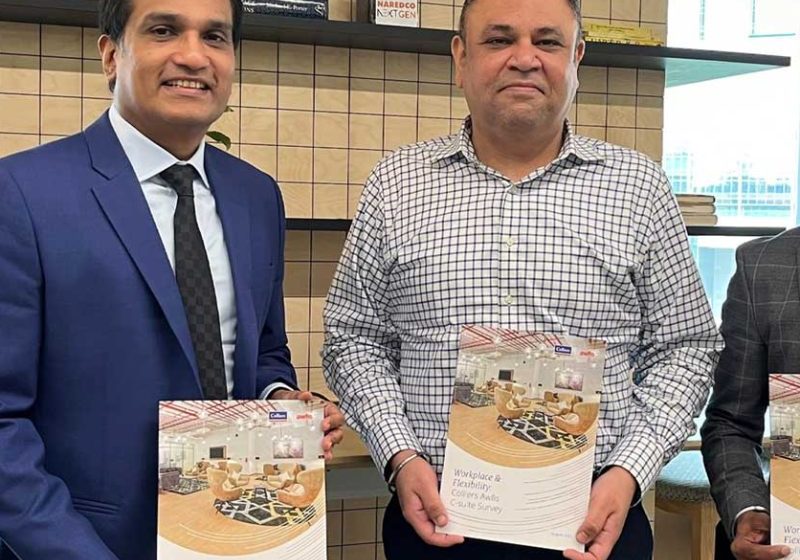A Clear Vision
Dec 4, 2022

CREDAI-MCHI unveils its vision document for the MMR.
Confederation of Real Estate Developers’ Associations of India-Maharashtra Chamber of Housing Industry (CREDAI-MCHI) recently launched a vision document titled “Maximise, Modernise, Revolutionise” as part of its policy initiative focused on the Mumbai Metropolitan Region’s (MMR) regeneration. The document mentions some trends that will transform MMR, including digitalization of administration, an electric vehicle ecosystem, a better public transport system, and sustainable and responsible construction practice, among others. The state government and CREDAI-MCHI jointly plan to act on these trends through a proposed committee of subject experts.
The vision document was unveiled at a ceremony held at Bandra Kurla Complex (BKC), Mumbai, attended by Bhushan Gagrani (Indian Administrative Service (IAS)), additional chief secretary to Chief Minister; Ajoy Mehta (IAS Retd.), chairman, MahaRERA; Arch. Hafeez Contractor; Mukesh P. Mehta, chairman, M M Project Consultants Pvt. Ltd.; and Shrikant Joshi, CEO & MD, Larsen & Toubro Ltd. (Realty Division).
Commenting on the launch of the policy initiative, Boman Irani, president, CREDAI-MCHI, said:
“MMR is one of the key growth drivers in the real estate industry with many buyers wanting to invest in the ‘City of Dreams.’ In a changing world, Mumbai is grappling with several obstacles that are hindering its growth, including inadequate water resources, improper waste management and rising levels of pollution, among others. With this policy initiative, CREDAI-MCHI aims to turn its key recommendations into a reality, with the joint efforts of the Government of Maharashtra and Municipal Corporation of Greater Mumbai (MCGM) to transform Mumbai into a self-sustainable, world-class livable city.”
Dhaval Ajmera, hon. secretary, CREDAI-MCHI, said:
“Being the business, entertainment and financial capital of India, Mumbai has the potential to transform into a world-class city with a good quality of life and vibrant economy. The vision document covers key aspects that require immediate attention for overall improvement of the area. This will give a major boost to several industries and improve environmental conditions within the region, making it one of the best places to live for its citizens.”
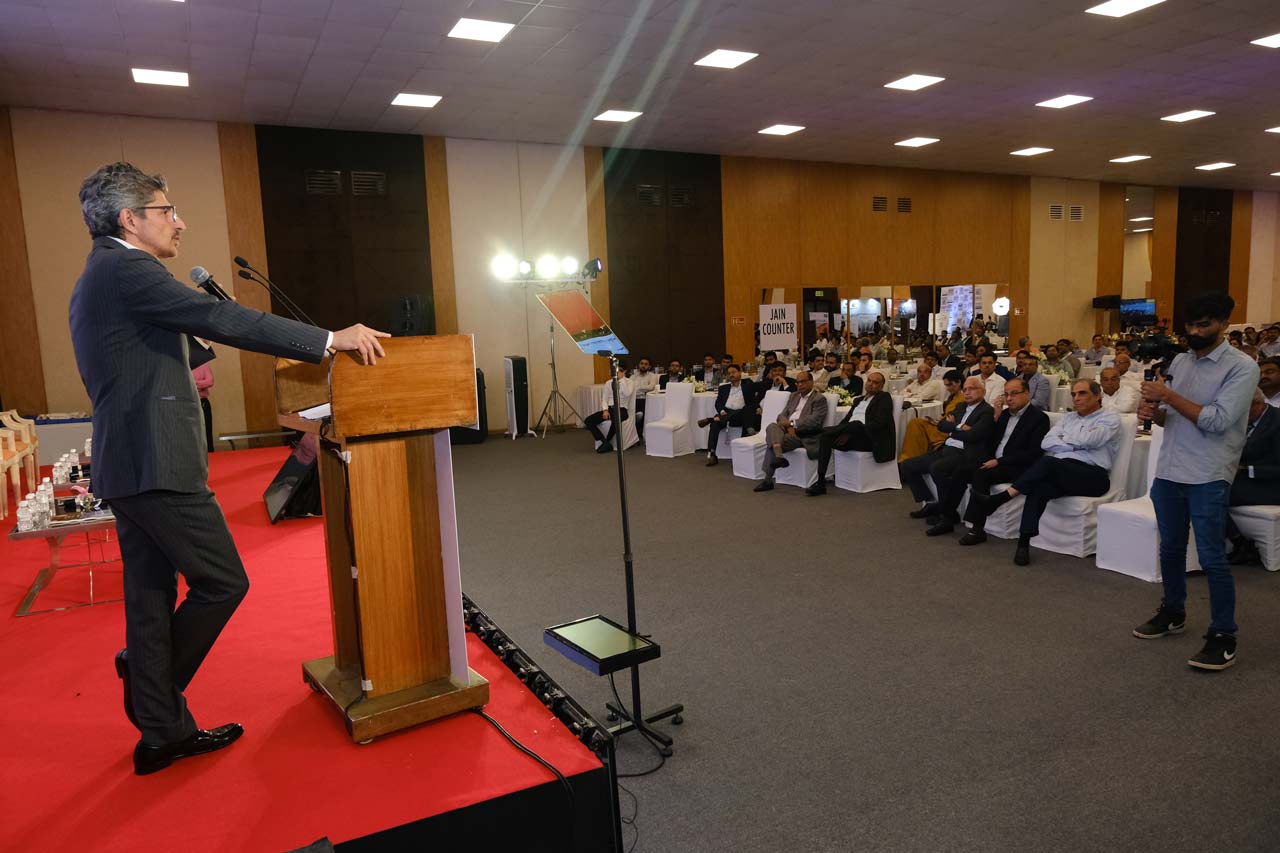
Keval Valambhia, COO, CREDAI-MCHI, said:
“This vision document envisions a complete revamp of the region with an impetus to innovate urbanism, keeping environmental protection as a major priority to weed out outdated production capacity, reduce emissions, enhance the protection of water and land resources and build MMR into a sustainable eco-region. The initiative also draws a concrete blueprint with an optimistic vision for a Mumbai without its ongoing challenges like waterlogging, slums, poverty, unemployment and noise.”
When a city is in decline, it has to establish a clear vision of its future identity, with its people at its heart, to turn things around.
The objective behind this policy initiative is to further transform MMR and boost economic growth and development for the region and the country as well. It aims to build Mumbai and MMR into a world-class sustainable region and modern cosmopolis by 2040 with the joint efforts of the state government while emphasizing climate change and carbon neutrality along the way.
Through this initiative, CREDAI-MCHI as a stalwart entity draws key recommendations to act now to integrate, innovate and internationalize MMR through public/private partnership and a people-driven development model. Some of the key measures as suggested by CREDAI-MCHI include Integrated Urban Water Authority, rejuvenation of water bodies, dedicated mangrove parks, introduction of skill trucks, integrated data strategy, infrastructure investment fund board and more.
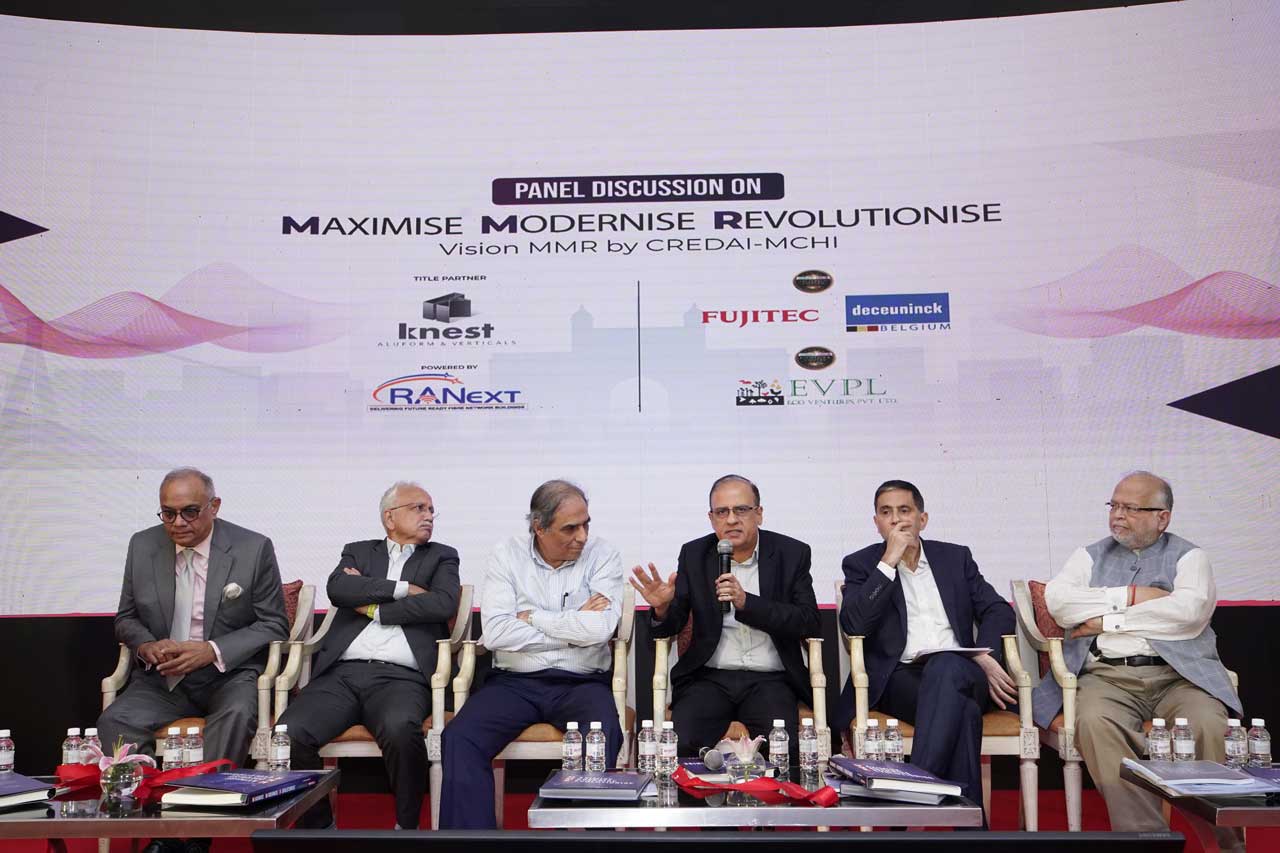
Some Excerpts
In the foreword, Irani points out that, in a city, nothing is permanent. Cities are constantly in flux, just like living organisms. When a city is in decline, it has to establish a clear vision of its future identity, with its people at its heart, to turn things around.
New residents, visitors and business investments can either be attracted or repelled by cities, which act as magnets. Developing the solid magnetic pull of a city requires all stakeholders to be well-versed in managing the migration of people, ideas and investments.
It is only possible if the city administration has a clear vision, an implementation plan and robust and conducive policies. It is also necessary to have a comprehensive vision for the city, including everything from public spaces to accommodations to sewage systems.
Today, cities are competing with each other ever more fiercely to attract good companies and residents who will help the city prosper. Opportunities offered by international cities, such as London, Hong Kong and Dubai, are always attractive to multinational companies and high net-worth individuals (HNI).
However, businesses are more likely relocate to Mumbai if the city can attract residents whose demographic profile aligns with its vision, especially young creative thinkers. As a result, the region will likely gain a reputation for attracting certain industries and lifestyles.
This is only possible when the city has a consistent approach to urban reconstruction and development. In this vision document, CREDAI-MCHI examines how MMR can compete with these cities and/or regions to retain and attract top companies.
This Blue-Book aims to enhance MMR’s attractiveness by identifying a few guiding principles. I’m sure this vision will be taken forward by the Government of Maharashtra with the help of CREDAI-MCHI.
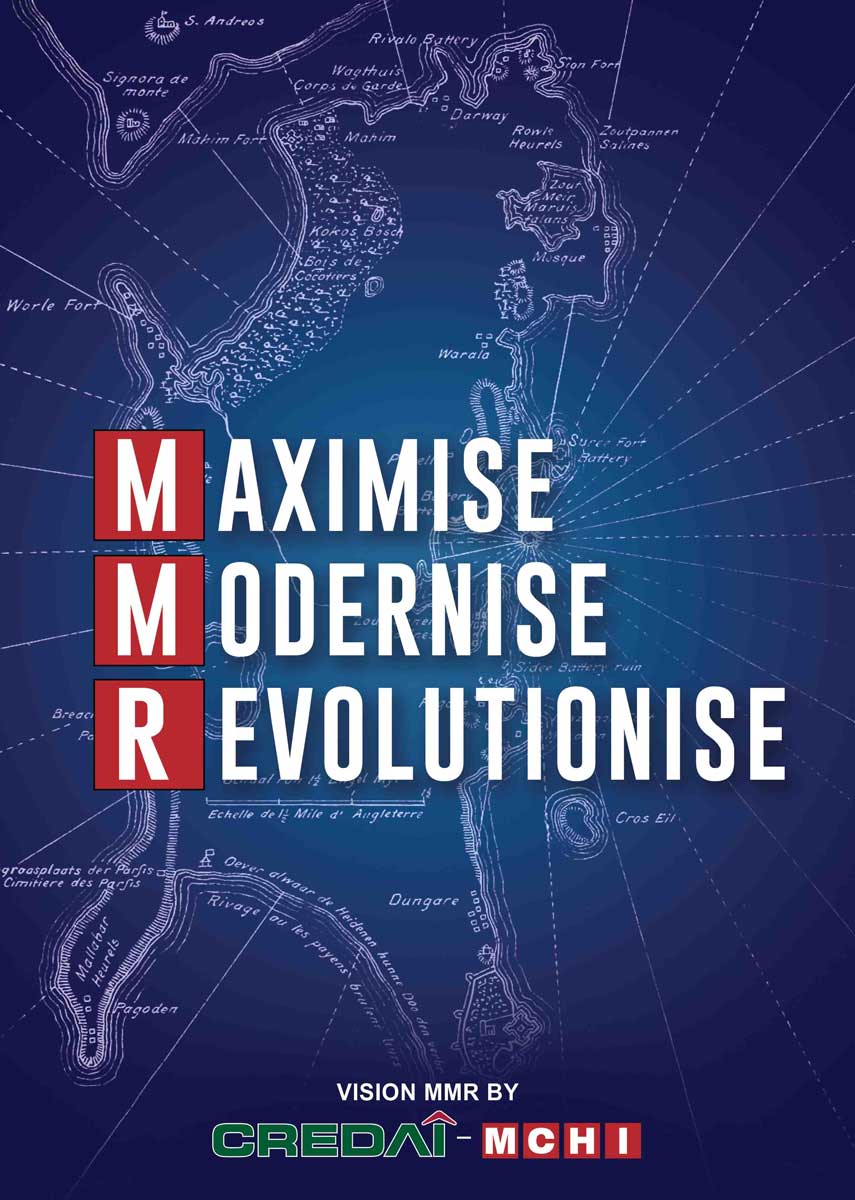
The chapter “A City with a Potential of One Trillion Dollar Clean Economy” mentions that Mumbai is Maharashtra’s economic hub, accounting for roughly half of the state’s GDP, estimated at US$350-400 billion. By 2030, India’s GDP could exceed US$10 trillion. Nonetheless, India lacks a city comparable to New York, Tokyo or Shanghai, which is unusual for such a large and economically vibrant country. These cities have higher economies than Canada and Indonesia, each contributing more than a tenth of the country’s GDP. Due to its dominant role in the service industry, particularly finance, Mumbai’s economy must triple to achieve a US$1 trillion GDP.
Business-as-usual (BAU) will not get Mumbai there, but the appropriate policy frameworks can increase growth. Consequently, the city must redesign its infrastructure, population density and urban transportation to compete with Singapore and Shanghai for the relocation of global banks and other world-class financial firms.
Additionally, legal adjustments are essential, especially for removing the uncertainties and complexities around taxation for financial services firms, as this is one of the reasons for most of the local fund-management industry’s relocation to Singapore.
Mumbai will also need to develop a first-rate system for resolving commercial disputes. This includes everything from fast-track courts to international arbitration. Equally crucial, the chaotic city must develop an efficient core — a business district appealing enough to big global corporations to want to locate there.
About CREDAI-MCHI
CREDAI-MCHI is an apex body consisting of members from the real estate industry in the MMR. With a strong membership of more than 1,249 leading developers in Mumbai, CREDAI-MCHI has expanded across MMR, having its own units in the region of Thane, Kalyan-Dombivli, Mira-Virar, Raigad, Navi Mumbai, Palghar-Boisar, Bhiwandi, Uran-Dronagiri, Shahapur-Murbad and recently announced units in Alibag, Karjat-Khalapur-Khopoli, Pen. CREDAI-MCHI is the only Government-recognized body for private sector developers in MMR and consistently works to make the industry more organized and progressive. CREDAI-MCHI, under the aegis of CREDAI National, which is an apex body of 13,000 developers from across the nation, has developed into a preferred platform with regard to a regional discourse on housing and habitat through its close and deep networking with the Government.
Get more of Elevator World. Sign up for our free e-newsletter.

